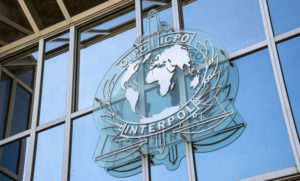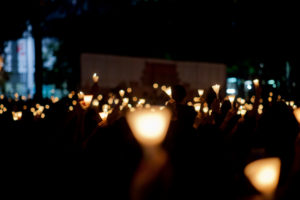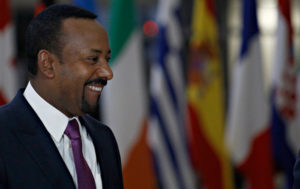April 2024, Volume 35, Issue 2
Why Autocracies Fear LGBTQ+ Rights
The battle over rights for sexual minorities has divided countries into opposing camps. But autocrats are lashing out with one aim: countering the liberal international order.
756 Results
April 2024, Volume 35, Issue 2
The battle over rights for sexual minorities has divided countries into opposing camps. But autocrats are lashing out with one aim: countering the liberal international order.
July 2002, Volume 13, Issue 3
Democracy promotion is a cause-oriented mission, but a good deal of hard-headed realism goes into program planning and work.
October 2001, Volume 12, Issue 4
A leading Russian oppositionist speaks out against continuing official assaults on self-government and human rights.
April 2001, Volume 12, Issue 2
A review of Culture Matters: How Values Shape Human Progress, edited by Lawrence E. Harrison and Samuel P. Huntington.
January 2003, Volume 14, Issue 1
Excerpts from: “A Republican Manifesto: A Model for Overcoming Iran’s Political Deadlock” by Iranian investigative journalist Akbar Ganji; opening remarks and acceptance speeches from the fifteenth annual W. Averell Harriman Democracy Awards; “Community of Democracies statement on Terrorism.”


January 2022, Volume 33, Issue 1
President Kais Saied’s power grab has crushed Tunisian democracy, returning the country to the old playbook of Arab dictators past and present.


April 2024, Volume 35, Issue 2
Liberal societies are those which offer refuge from the very people they empower—through individual choice, mobility, and the possibility of exit. This is the form of liberty that most clearly elevates the liberal project.
January 2018, Volume 29, Issue 1
International Forum for Democratic Studies report on "Sharp Power: Rising Authoritarian Influence"; Emmerson Mnangagwa's inaugural address as interim president of Zimbabwe; letter from Zimbabwean civil society organizations; address by U.K. prime minister Theresa May; statement by former Soviet political prisoners and dissidents.
January 2021, Volume 32, Issue 1
A review of Kleptopia: How Dirty Money Is Conquering the World, by Tom Burgis.
October 2024, Volume 35, Issue 4
An interview with Vladimir Kara-Murza; María Corina Machado on the Venezuelan opposition movement; a speech from Bangladesh’s new interim chief advisor; an open letter from Tunisian opposition candidates; a professor on the youth anticorruption protests in Uganda; and NATO’s seventy-fifth anniversary.


April 2019, Volume 30, Issue 2
Globalized authoritarian regimes are increasingly abusing Interpol’s notice system to go after political opponents based abroad. These regimes seek not only to punish their critics, but also to legitimate their own acts of repression.
Fall 1990, Volume 1, Issue 4
The complete text of the “Freedom Charter,” the basic statement of principles of the anti-apartheid African National Congress party of South Africa.


April 2019, Volume 30, Issue 2
China’s 1989 democracy movement was brutally suppressed, but a former student leader argues that it also planted the seeds for the growth of Chinese civil society and for future democratization.


July 2019, Volume 30, Issue 3
Popular dissatisfaction and tensions within the long-ruling EPRDF have led to the rise of a young reformist leader who has begun a course of bold reversals in favor of greater freedom and openness.

October 2011, Volume 22, Issue 4
Though justly vaunted as the world’s largest democracy, India will in all likelihood remain reluctant to take on the mantle of “democracy promoter” for a mix of historical, ideological, and strategic reasons.
April 2024, Volume 35, Issue 2
The power of liberalism—though limited and never revered—enables it to serve as refuge while taming the demons of liberal society.

October 2022, Volume 33, Issue 4
A recent wave of wins for abortion rights—the “green tide” in Argentina, Mexico, and Colombia—owes its success to framing the issue as a matter of human rights.
April 2017, Volume 28, Issue 2
In 2016, established democracies figured prominently on the list of countries experiencing declines in freedom, while emboldened autocracies stepped up their repression at home and interference abroad.
January 2013, Volume 24, Issue 1
The response of the Chinese state (and of Chinese society at large) to the problems of the country’s periphery—Tibet, Xinjiang, and Inner Mongolia, as well as hundreds of counties, prefectures, and townships in Sichuan, Qinghai, Yunnan, and other areas—is piling more tension and misery upon the populations there, but it is not undermining state power.
October 2009, Volume 20, Issue 4
Latin American social policy has at times worked backwards, widening rather than narrowing economic and social inequalities. But new conditional cash-transfer programs seem to be producing positive outcomes.